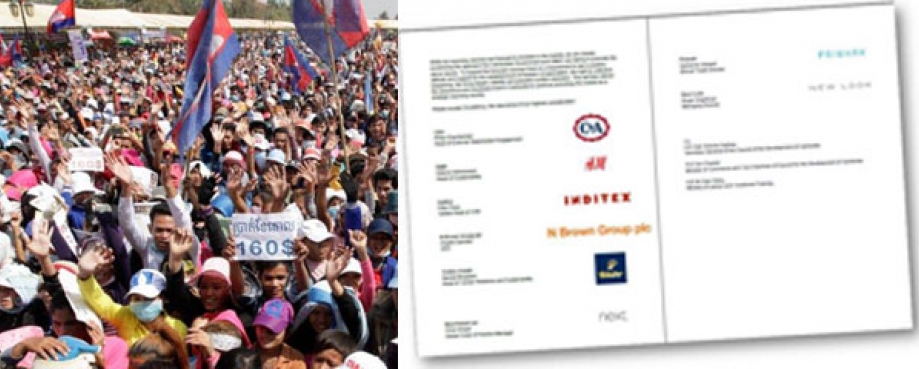
One of the ethical trade highlights of the past year was the letter from eight European ETI member companies, urging the Cambodian government to raise minimum wages and pledging to pay more for products to help support this. Soon afterwards a group of US retailers echoed the call. It was such a breakthrough that it has been mentioned in every one of our series of blogs for this Living Wage Week!
We are used to trade unions and campaigners arguing for fair wages – that’s their job after all. But for commercial retailers to back them in their call at this level and on this scale may be unprecedented. This is exactly the kind of action that the second pillar of the UN Guiding Principles on Business and Human Rights; “The corporate responsibility to respect human rights” calls for. And by taking this stand, brands are effectively pressing for action on the first pillar, “The State duty to protect human rights”. State and employers together are responsible for the third pillar “Access to remedy,” which we will hopefully see enacted once the wage negotiations are complete.
Companies are often fearful of the financial consequences of increasing wages, though as my blog from Monday shows, they probably don’t need to be. Poverty wages are a false economy; the unrest and disruption in Cambodia in January, including a violent crack-down on workers who were demonstrating for higher wages, does not make for the best environment for production or investment.
On the other hand, improving wages make good business sense. As Andy York of N Brown Group – one of the signatories of the Cambodia letter puts it; “As a business we have tried to look at a Living Wage with a different pair of eyes. We see this as a key driver to enable workers to be more empowered right across the garment supply chain.”
But he also cites another powerful reason for supporting living wages; “For N Brown Group Living Wage is a moral right and something that we also need to ensure happens for our own lowest paid workers within our company, such as our warehouse staff. We are pleased that this has been agreed by the business as morally the right approach and we will drive this forward in our industry sector working closely with others.”
As N Brown Group recognises, individual brands cannot bring about living wages on their own. York continues; “We also see that we can only really succeed at this and remain competitive by doing this as a full industry. We realise that someone needs to lead and are working strongly with other retailers as a group to make this happen.”
When brands go further and collaborate with unions, NGOs and other players, they have an even better chance of making – and keeping – living wages a reality. That’s why after the Cambodian labour unrest, ETI convened a group of international brands and global trade unions to meet with the Cambodian government and send a clear signal about brands’ support for improved working conditions in the Cambodian garment and footwear industry.
ETI is proud that many of its members, including, N Brown Group, are taking a lead in the journey towards living wages. We hope that others will be inspired – and reassured – by their example. We hope that they, like N Brown Group, feel that it is morally the right thing to do and that they “have a responsibility to make this happen. And to prove to stakeholders we are serious about this.”
